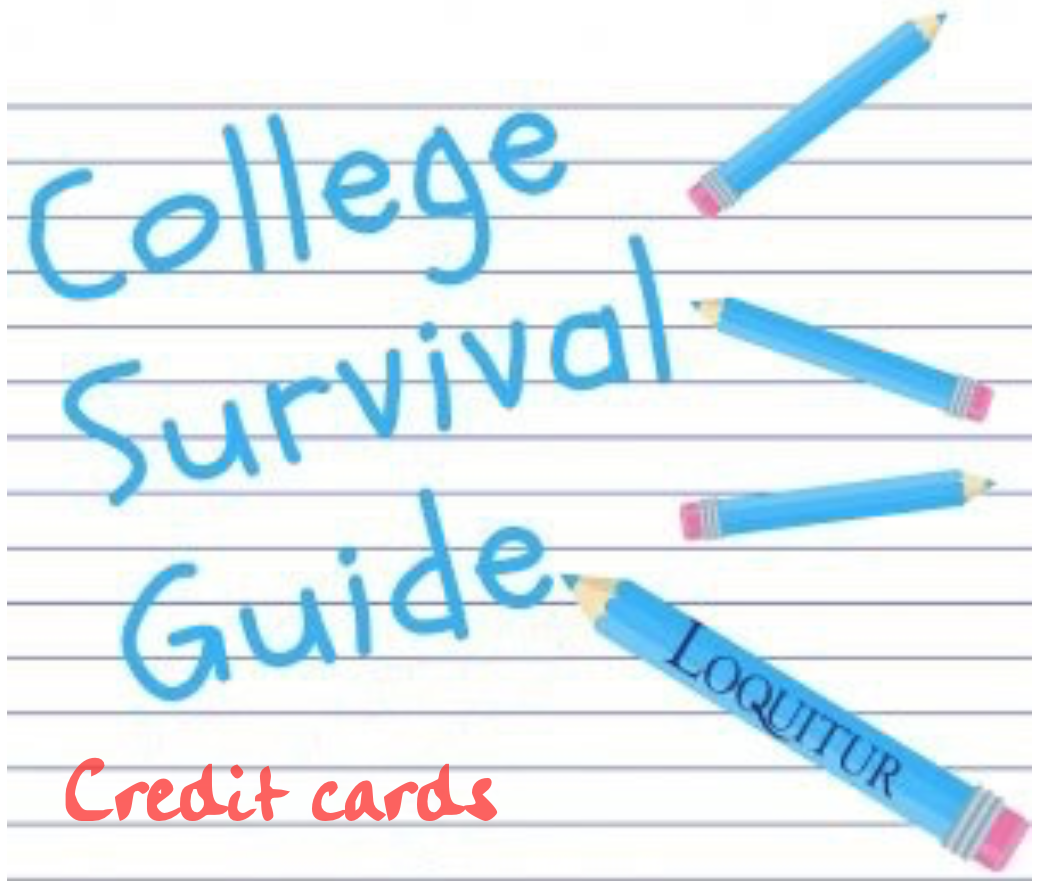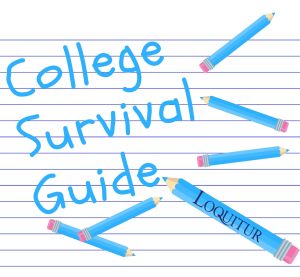
Spiders. Clowns. Heights. Darkness. Death.
These are some of the most commonly considered fears. Death especially can be a frightening thought. The fear of the unknown afterlife is one that affects 68 percent of people, according to Statistic Brian.
But according to a survey by the financial-advice website Credible, young adults fear one thing more than death: credit card debt.
It is not surprising that millennials have become so fearful of debt. At a time when the average college graduate has over $37,000 in debt and when nearly 20 percent of millennials report that they rely on credit cards to supplement their monthly income, it is no wonder so many are cowering in fear of getting a credit card.
As a self-proclaimed adulting expert, I want to clarify that credit cards are not something of which you need to be afraid. In fact, having a credit card— and furthermore, having a good credit score— is an essential aspect of life.
If you follow my advice, handing a credit card will come much more easily.
Pay it off every month
The most imperative part of using a credit card is paying it off at the end of every cycle.
After every monthly period, you receive your statement and your bill. The bill will include the minimum payment due.
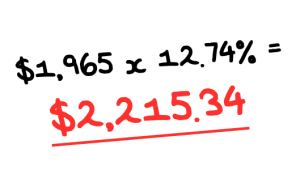
Your plan as well as how long you have owed money determines what that minimum payment is. You could have a credit card bill that is $2,000, for example, but the minimum payment you owe might only be $35. This creates the opportunity for credit card companies to make interest off of the $1,965 you did not pay back.
The best thing you can do for your credit history and yourself is pay the bill in full, on time every single month.
When you are young and still building credit, you tend to have a high interest rate. According to Credit Karma, the national average interest rate is 12.54 percent. The interest rate is essentially what you pay for borrowing money; however, as long as you pay off your bill in full, you never have to worry about interest.
Late payments will reek havoc on your credit score and unpaid bills will cause amount owed to increase exponentially. The most important thing to do as a credit card user is pay off your card every month.
Don’t spend money you don’t have
To some people, having a credit card can feel like having infinite money. When all you have is cash, you have a set limit; however, with a credit card, that limit is significantly higher. Impulse buying is a serious concern for credit card users.
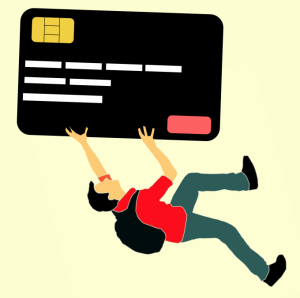
If you have a credit card, it is important to still limit yourself. I recommend never spending money you don’t have.
If you want to purchase something but you don’t have enough money in cash or in your checking account, then you won’t have enough money to pay off the credit card bill when it comes. When this is the case, you should not make the purchase.
The only exception is when you want to buy something but will not have the money until pay day. Under this circumstance, use your credit card to buy the item. Then, once you do get paid, mentally put that money aside and— to reiterate— pay it off at the end of the billing cycle.
Keep track of your spending
Similarly, when you have a card and it feels as though you have unlimited funds, you might lose track of your spending.
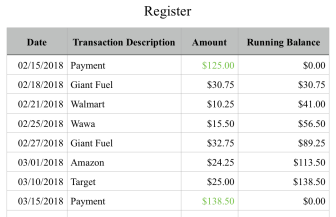
With a checking account, you probably have a statement book or an online account you check regularly. This is partially because with a checking account, you worry about hitting zero. You are counting down. With a line of credit, you are counting up, and the number you are counting to encompasses a higher amount, so getting lost happens more often.
When you have a credit card, you still need to keep track of all your purchases. This extends past keeping your receipt until the purchase posts. You actually should keep every receipt for the entire billing period. When your bill and statement comes, then you need to compare each purchase on the statement to the corresponding receipt.
In doing so, you can assure you are not being overcharged and that you are keeping track. This will feel like a lot of extra effort at first, but will pay off in the peace of mind it provides.
Why you need a credit card in the first place
Having a credit card can feel like a lot of work, but it is important to have one.
Credit cards are safer than cash. If your wallet is stolen, you lose all the cash you have in there; however, if a card is stolen, you have the option of freezing or cancelling the card. This ensures all of your funds are safe.
Credit cards are also safer than debit cards, because with a stolen credit card, the amount you are liable for is significantly less than with a stolen debit card, because of the Fair Credit Billing Act.
This is an obvious one, but credit cards also come in handy when making online purchases. You need some type of card to buy things off the internet. I recommend having a credit card for this reason, rather than just using your debit card, because as I mentioned above, if your card is digitally intercepted, you will be grateful it was a credit card and not a debit card.
Emergencies are another reason to have a card. Unfortunately, unexpected incidents occur. Sometimes, you have to spend money that you do not have. In those instances, a credit card is key.
Most importantly, you need to build your credit history. When you take out loans, mortgage a house or buy a car, businesses look at your credit report. Without a credit card, there will not be as much of a credit history to observe, and you will have a more difficult time proving that you are responsible with money.
Additionally, having credit cards can be a good thing.
As mentioned above, credit cards provide you early access to funds. You do not have to wait until every other Friday with a credit card.
A plethora of credit card companies also provide cash back. Certain companies offer one percent, two percent and even five percent cash back on certain purchases. You ultimately can get paid to spend money when you earn five cents off of every dollar you spend on gas, groceries and qualifying restaurants.
Credit cards can be concerning and managing one may seem overwhelming, but using one is undoubtedly important. I like to think that with these tips, it is possible. You just need to give yourself some more credit.

